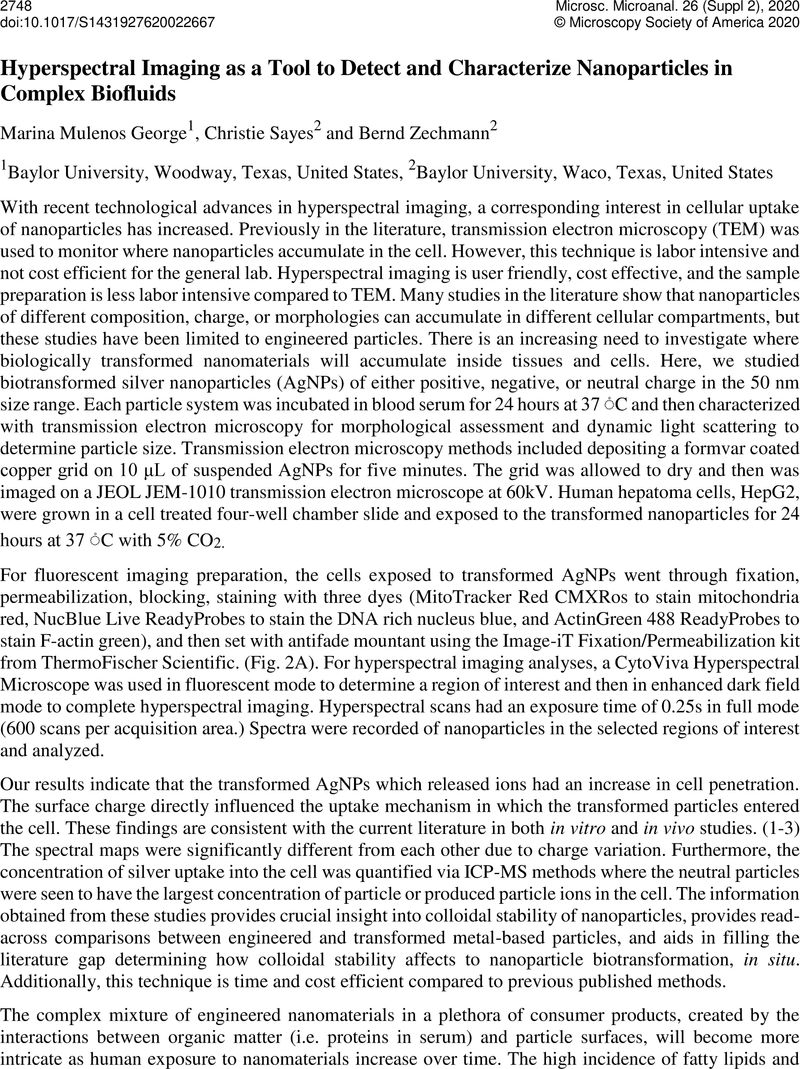No CrossRef data available.
Article contents
Hyperspectral Imaging as a Tool to Detect and Characterize Nanoparticles in Complex Biofluids
Published online by Cambridge University Press: 30 July 2020
Abstract
An abstract is not available for this content so a preview has been provided. As you have access to this content, a full PDF is available via the ‘Save PDF’ action button.

- Type
- Correlative and Multimodal Microscopy and Imaging of Physical, Environmental, and Biological Sciences
- Information
- Copyright
- Copyright © Microscopy Society of America 2020
References
Sun, J., Bi, C., Chan, H. M., Sun, S., Zhang, Q., & Zheng, Y. (2013). Curcumin-loaded solid lipid nanoparticles have prolonged in vitro antitumour activity, cellular uptake and improved in vivo bioavailability. Colloids and surfaces b: biointerfaces, 111, 367–375.10.1016/j.colsurfb.2013.06.032CrossRefGoogle ScholarPubMed
Davda, J., & Labhasetwar, V. (2002). Characterization of nanoparticle uptake by endothelial cells. International journal of pharmaceutics, 233(1-2), 51–59.10.1016/S0378-5173(01)00923-1CrossRefGoogle ScholarPubMed
Panyam, J., Sahoo, S. K., Prabha, S., Bargar, T., & Labhasetwar, V. (2003). Fluorescence and electron microscopy probes for cellular and tissue uptake of poly (D, L-lactide-co-glycolide) nanoparticles. International journal of pharmaceutics, 262(1-2), 1–11.10.1016/S0378-5173(03)00295-3CrossRefGoogle ScholarPubMed



